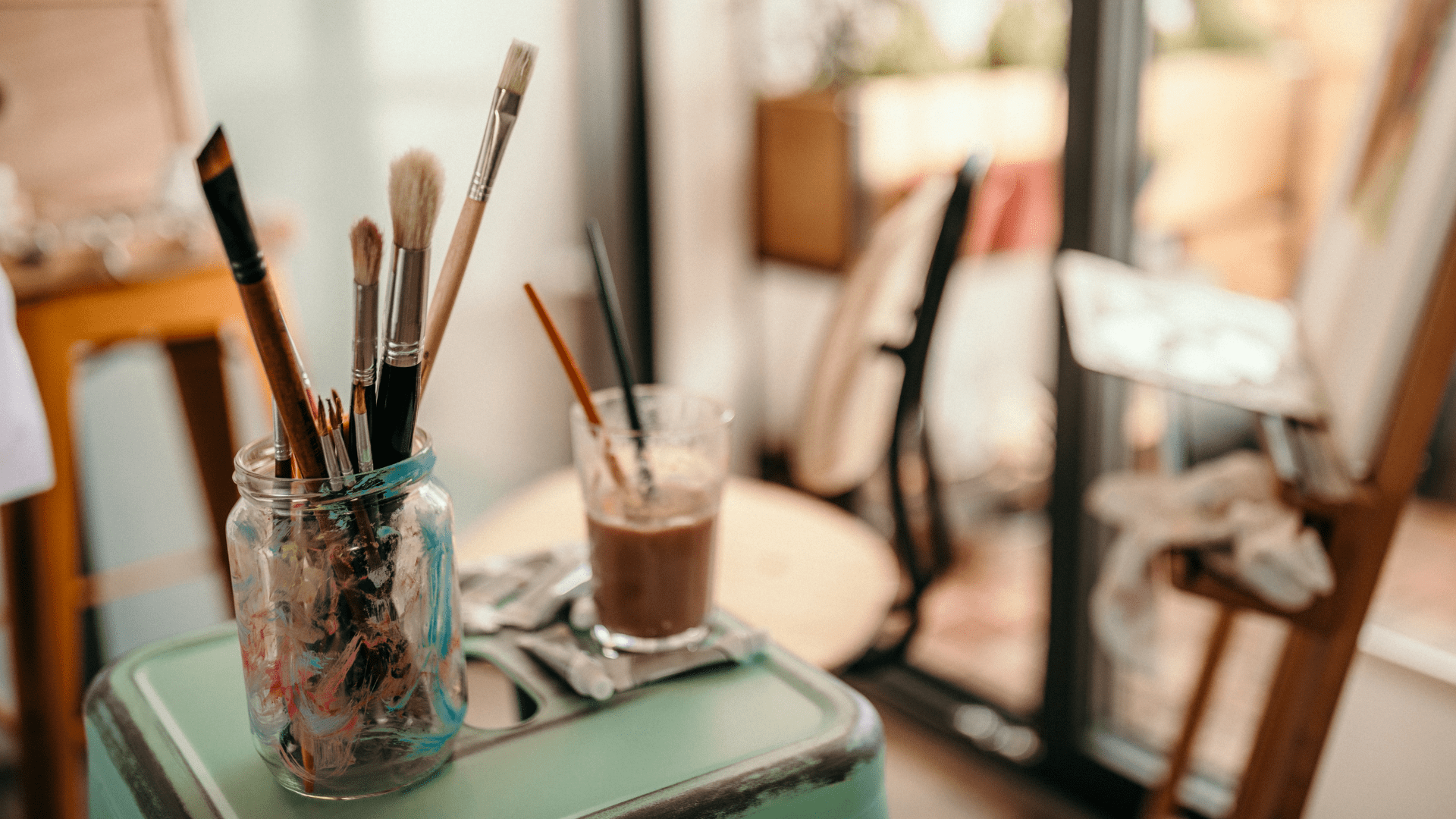
As our Read and Renew Summer Program comes to a close, we’re ending with a quiet revolution. Amy Pierson’s book, Makers in a Thinkers’ World invites us to remember what the world often forgets—creativity is sacred.
Meet Amy Pierson
Amy is a writer, teacher, and creative soul who knows how it feels to live in a world that moves in straight lines. She paints, writes, sketches, and journals—but more than anything, she listens for God in the quiet swirl of color and movement.
“I begin creating,” she says, “and God creates the meaning in my soul.”
She doesn’t force it. She lets it flow, slow and soul-deep. Like prayer with a paintbrush.
What It’s Like to Be a Maker
Makers feel the world in waves, not grids. They think in images or feelings, not just lists. But in many spaces—churches, schools, workplaces—there isn’t much room for that. Logic gets a seat at the table. Creativity gets left in the hallway.
Amy gently asks, what if the system is too narrow? What if the space around them is too small?
She captures this struggle beautifully when she writes:
“When you are born to dance and all the world wants is a factory worker, it can break your heart.”
When we silence the artists, poets, and dreamers, something sacred is lost.
Creativity as a Spiritual Gift
One of the strongest themes in Makers in a Thinkers’ World is that creativity is not extra or optional. It is a vital part of who we are.
God is Creator. From the start, He shapes the world with beauty, rhythm, and light. That means creativity isn’t just allowed, it’s part of God’s design.
Amy reminds us that when we create, we echo God’s heart. Whether it’s baking bread, sketching a sunset, or humming a tune, it’s worship. It’s prayer that moves through your body. It’s how many of us talk with God when words fall short.
The Brain and the Soul
Here’s the part most of us were never taught: creativity lights up the right side of your brain. That’s the part that helps you feel, connect, and imagine. But many churches and Bible studies focus only on thinking. Knowing. Analyzing.
Amy says it so well: “We’ve been taught to study God, but not to sit with Him.”
When we make space for creativity, we let our nervous systems breathe. We begin to notice God again—not as a theory, but as someone close.
That’s why creativity is more than a tool, it’s a lifeline. And yet, many makers grow up being told to “tone it down.”
Makers Don’t Need Fixing
But what happens when that lifeline gets dismissed or overlooked?
Amy’s been there too.
She’s here to say: makers don’t need fixing. They need freedom.
Freedom to wonder. Freedom to rest. Freedom to pick up a paintbrush like they’re picking up their dignity again.
Amy has led creative workshops where people painted, wrote, walked in nature, and shared their hearts. One friend even gave her a picture of a flamingo water skiing, just because it brought her joy.
That’s the kind of beauty that heals. Not because it’s perfect. But because it’s real.
When Creativity Feels Hard
But what if the joy is gone? What if you feel stuck?
Amy says that kind of dryness often comes from pressure, not lack. Too much doing. Not enough rest.
Let your nervous system catch its breath. Maybe your creativity isn’t gone, it’s just been waiting for you to stop and listen.
She invites us to stop, breathe, and get curious again. Go outside. Watch someone else create. Let delight find its way back to you.
And if you’ve ever thought, “I’m just not creative,” Amy asks, “Who told you that?” Because it wasn’t God.
Once we stop striving, we begin to notice: creativity is often waiting in the stillness.
Making Can Be Healing
Creativity helps us hold life’s deeper things: grief, wonder, even silence. You don’t need a studio. Just start with what’s in your hand.
Bring a journal to church. Doodle an image from a sermon. Write a word that sticks with you and ask God about it later.
These small acts aren’t just creative. They’re spiritual. Like placing sacred markers of memory, reminders of where God met you in the ordinary.
Even just sitting in nature can be a way of “making.” Amy often prays on her porch, asking, “God, what do You want to make today?”
That question alone can open the door to peace.
3 Ways to Support the Makers Around You
Here are three simple ways to honor the creatives in your life—or the one inside of you.
-
Speak blessing
Say, “God made you this way on purpose.” Let them know they’re not too much.
-
Make room
Create space to slow down. Creativity grows in quiet, not in hurry.
-
Celebrate their view
Even if it’s outside the box, ask questions. Stay curious. Their vision matters.
Questions for Reflection
Creativity starts small—often with reflection. So take a deep breath, and ask yourself:
- Where have I felt pressure to hide my creative side?
- How might God be inviting me to make space for beauty again?
- Who in my life may need encouragement as a maker?
A Gentle Reminder
Makers in a Thinkers’ World reminds us that not everyone thinks the same. And we’re not supposed to.
Creativity reflects God’s heart. When we honor it, we make space for connection, beauty, and healing.
This week, try one small creative act:
-
Write something.
-
Walk a little slower.
-
Hum a melody.
-
Notice color.
-
Make anything.
It doesn’t have to be perfect.
Just honest.
That's where the holy lives.



